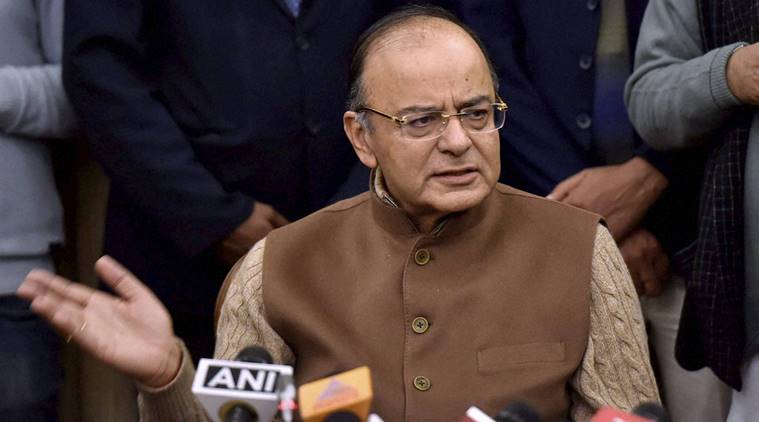Remonetisation: ‘Pain, inconveniences’ getting over, black money losing anonymity, says Arun Jaitley
On Facebook, Jaitley says that demonetisation intended to create new ‘normal’.
 Finance Minister Arun Jaitley.
Finance Minister Arun Jaitley.
Marking the completion of two months since the government announced its decision to withdraw high-value currency notes, finance minister Arun jaitley noted in a Facebook post that the “pain and inconveniences” is now getting over.
In his post on Sunday, Jaitley wrote that the queues outside the banks have disappeared as the remonetisation process has moved ahead and that the government’s move will lead to a “bigger and cleaner” gross domestic product in the medium to long run.
“The banks today admittedly have a lot more money available in order to lend for growth. Since this money constitutes low cost deposits with the banks, it is bound to bring down the rate of interest…Lakhs of crores, which were floating in the market as lose currency, have now entered the banking system,” he wrote, adding, “in the medium and long run, the GDP would be bigger and cleaner. Money entering into the banking system and officially transacted would give an ample scope for higher taxation – both direct and indirect.”
WATCH VIDEO | Government Suspects Tax Evasion In Deposits In Banks Post Demonetisation
He stated that demonetisation was intended to create a new ‘normal’ and change expenditure the pattern of India and its citizens.
“Expenditure required for poverty eradication, national security and economic development have to be compromised with on account of tax non-compliances….Tax evasion has been considered as neither unethical nor immoral. It was just a way of life. Several governments have allowed this “normal” to continue even though this compromised with larger public interest,” Jaitley added.
“It is obviously disruptive. All reforms are disruptive. They change the retrograde status quo. The demonetisation puts a premium on honesty and penalises dishonest conduct,” he added.
On November 8, Prime Minister Narendra Modi had declared that all the Rs 500 and Rs 1,000 notes will be invalid with effect from November 9 and the public was given time up to 30 December to deposit this money into the accounts.
Jaitley stressed that the deposit of a large quantum of high denominational currency in banks does not render this money to be legitimate cash. “Black money does not change its colour merely because it is deposited in bank. On the contrary, it loses its anonymity and can now be identified with its owner. The revenue department would thus be entitled to tax this money.
In any case, the amendment to the Income Tax Act itself provides that the said money, if voluntarily declared or if involuntarily detected, would be liable for differential and high rates of taxation and penalty,” he said.
The finance minister was referring to the recent amendments to the income tax act that seek to levy higher taxes and penalties on tax evaders while giving them a window to voluntarily come forward and declare their illegal income.
Jaitley said India continues to be a hugely tax non-compliant society. In the financial year 2015-16, 37 million assesses from a total population of 1.25 billion filed tax returns, he said, of which, 9.9 million assessees declared income below Rs 2.5 lakh and paid no taxes; 19.5 million declared income less than Rs 5 lakh; 5.2 million declared income between Rs 5 -10 lakh, and only 2.4 million declared income above Rs 10 lakh. “No better evidence is required to substantiate that both in the matter of direct and indirect taxes India continues to suffer being a hugely tax non-compliant society,” he said.
Photos





- 01
- 02
- 03
- 04
- 05


























